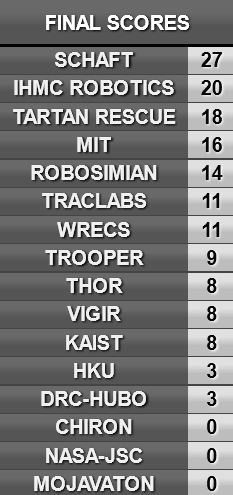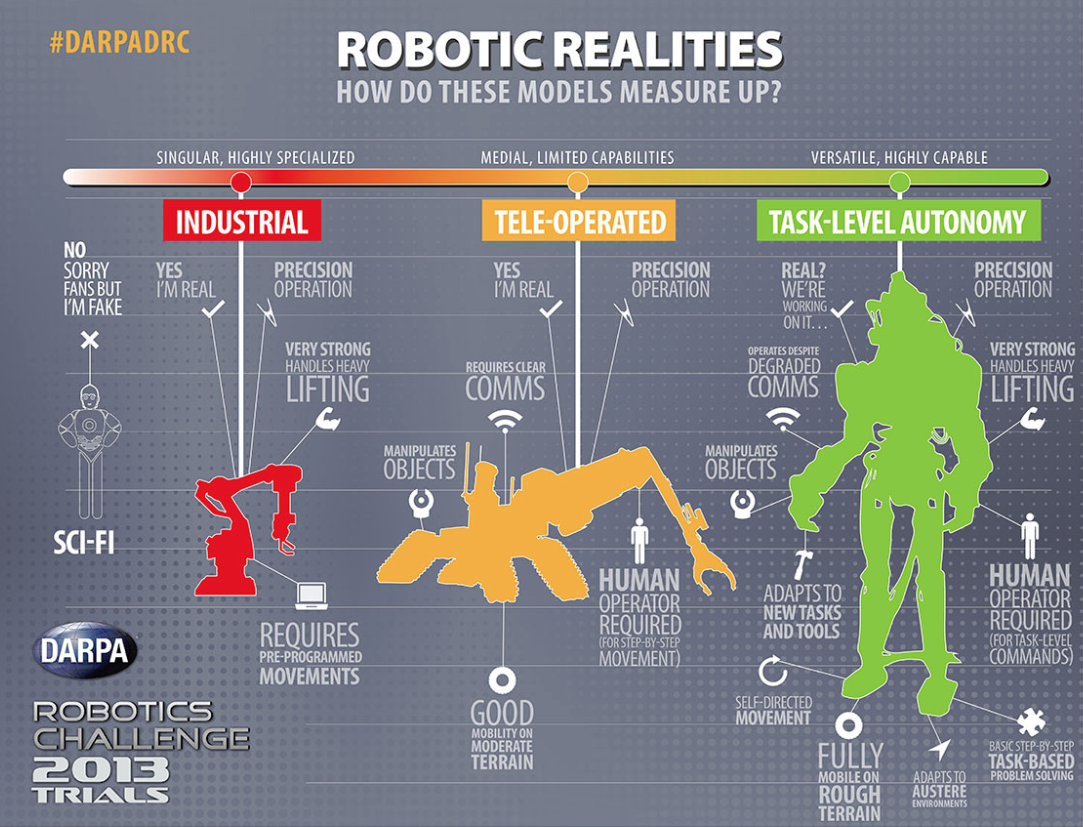DARPA Robotics Challenge Trials winner: Schaft from Japan
December 21, 2013
 It was a “Woodstock for robots,” said Boston Dynamics’ Marc Raibert, as sixteen teams from around the world came together at Florida’s Homestead Miami Speedway, December 20–21, 2013 to participate in eight demanding tasks in DARPA’s Robotics Challenge Trials.
It was a “Woodstock for robots,” said Boston Dynamics’ Marc Raibert, as sixteen teams from around the world came together at Florida’s Homestead Miami Speedway, December 20–21, 2013 to participate in eight demanding tasks in DARPA’s Robotics Challenge Trials.
And the winner was Schaft from Japan, owned by Google. Atlas-Ian from Florida Institute for Human and Machine Cognition placed second; it developed software for Boston Dynamics’ ATLAS robot. CMU’s Tartan Rescue came in at third place. A team from MIT and NASA JPL’s RoboSimian placed fourth an fifth.
The teams attempted to guide their robots through eight individual physical tasks that tested mobility, manipulation, dexterity, perception, and operator control mechanisms.
The DRC Finals will occur at the end of 2014 and will require robots to attempt a circuit of consecutive physical tasks, with degraded communications between the robots and their operators; the winning team will receive a $2 million prize.
“The Trials provide an important baseline on the current state of robotics today and their potential for future use in disaster response,” according to a DARPA statement. “Technologies resulting from the DRC will transform the field of robotics and catapult forward development of robots featuring task-level autonomy that can operate in the hazardous, degraded conditions common in disaster zones.
“By the time of the DRC Finals, we expect the robots will demonstrate roughly the competence of a two-year-old child, giving them the ability to autonomously carry out simple commands such as ‘Clear the debris in front of you’ or ‘Close the valve.’ The robots will still need to be told by human operators which tasks to chain together to achieve larger goals, but DARPA’s hope is that this demonstration will show the promise disaster response robots hold for mitigating the effects of future disasters.”
Day 1 Wrap Up:
Day 2 Wrap Up:

